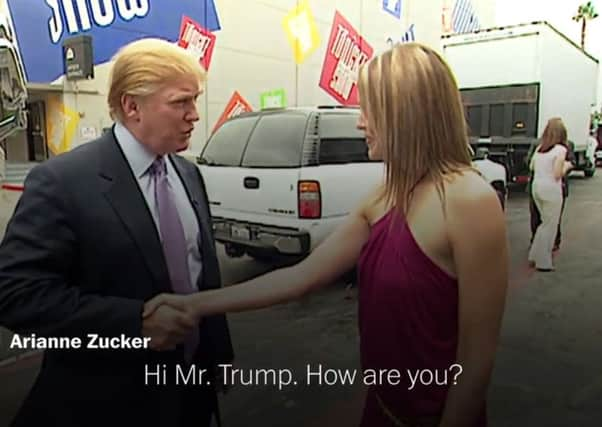Frank Bruni: Daughters give false ring to Republican hand-wringing


What, you ask, do my parental and marital statuses have to do with recognising the outrage of what he said? I wonder, too. But they must be germane, because Republicans seem unable to censure Trump without invoking female spouses and especially offspring. In this version of Take Our Daughters to Work Day, the work is displaying concern for women, and the daughters are less protégées than props.
Mitch McConnell, the Senate majority leader, used a written statement of displeasure with Trump to identify himself as “the father of three daughters”. This was apparently a wellspring of his pique, which didn’t rise to the level of actually rescinding his endorsement of Trump. Would a fourth daughter have done the trick? A fifth?
Advertisement
Hide AdAdvertisement
Hide Ad“As a husband and father,” was how Mike Pence, who has a son and two daughters, commenced his own short-lived reprimand of Trump. Jeb Bush tweeted that he was “the grandfather of two precious girls”. In a debate in Arizona on Monday night, John McCain referred to his daughters.
The pattern of husbands standing up for wives and fathers looking out for daughters was conspicuous, but it had a stronger whiff of chivalry than concern for equality. It also defined women in terms of men and caring about them in terms of their places in men’s families.
In much of this there was a familiar insinuation that parenthood is a singularly sensitizing, enlightening circumstance, giving someone a special stake in a more just world. But doesn’t Trump himself contradict that?
He’s a parent five times over. He’s a father of two daughters himself, and that’s a credential he carried with him into his nauseating exchange with Billy Bush in 2005 and into his vulgar conversations with Howard Stern across the years.
It didn’t prevent him from giving Stern permission to call Ivanka “a piece of ass”. It didn’t give him pause as he objectified Megyn Kelly, Carly Fiorina, Alicia Machado and so many other women.
Trump’s an egregious example, but hardly an isolated one. McConnell’s three daughters obviously haven’t clued him into the special challenges many women still face in the workforce, because he has spoken and voted on legislation in a manner that minimises those.
And while Scott Garrett, a Republican congressman from New Jersey, called himself “a husband and father of two daughters” when he attacked Trump’s remarks, he has taken positions against insurance coverage for mammograms and medical privacy for rape victims. What did the women in his life have to say about that?
There’s something off-key when lawmakers –Republicans or Democrats, in connection with Trump or in other instances – describe the importance of an issue in accordance with its relevance to the people closest to them and its proximity to their doorstep. Or when they present their descendants as the best proof of their investment in the future.
Advertisement
Hide AdAdvertisement
Hide AdThe message of that is antithetical to public service and political leadership, which are ideally about representing kin and strangers alike, casting the widest possible net of compassion and letting common values, not personal interests, be the compass.
My loins are fruitless but my principles are clear: no human being – woman or man – should be regarded as a conquest or an amusement with a will subservient to someone else’s. That’s how Trump seems to treat most of the people in his life, and I object to that not as the brother of three admirable siblings (including a sister), not as the son of two extraordinary parents (including a mother), not as the uncle of many talented nieces and nephews, not as the partner of a wonderful man, and not as a friend to brilliant men and women whose welfare matters greatly to me.
I object to it as the citizen of a civilized society. I object to it because it threatens the people I don’t know as well as the people I do. I object to it because it’s wrong.
© 2016 New York Times